We aim to
Work for Human Unity
Auroville as an experimental universal township would contribute significantly to the progress of humanity towards its splendid future by bringing together people of goodwill and aspiration for a better world.
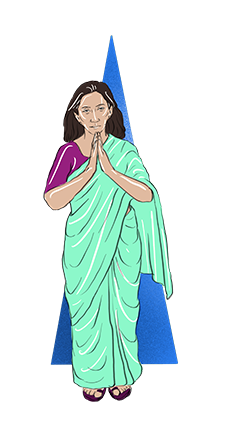

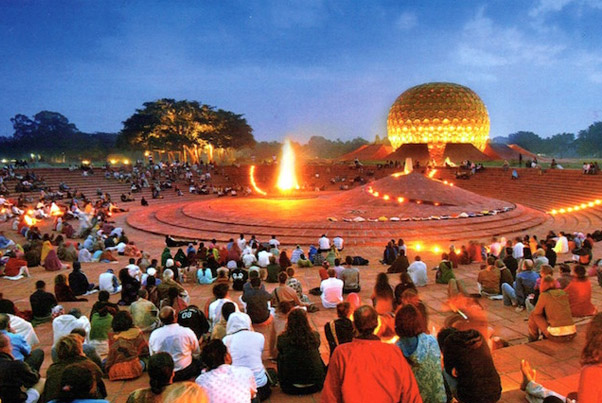
Auroville was born on 28 February 1968. Its founder, the Mother, created the Auroville Charter consisting of four main ideas which underpinned her vision for Auroville. When Auroville came into being, All India Radio (AIR) broadcast the Charter, live, in 16 languages. Aurovilians apply the ideas of the Auroville Charter in their daily life, in policy-development, and decisions, big and small. The Charter thus forms an omnipresent referent that silently guides the people who choose to live and work for Auroville.
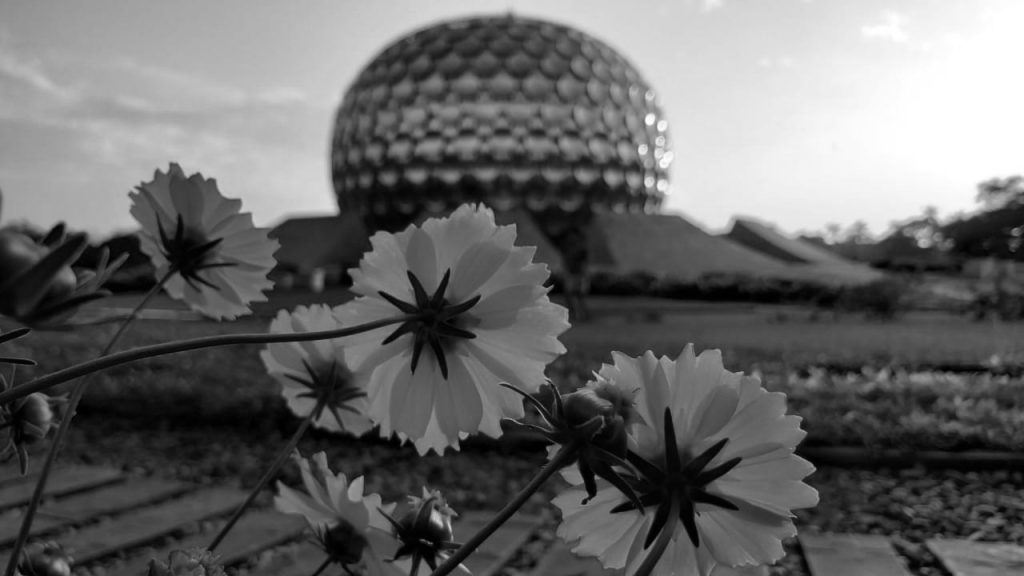
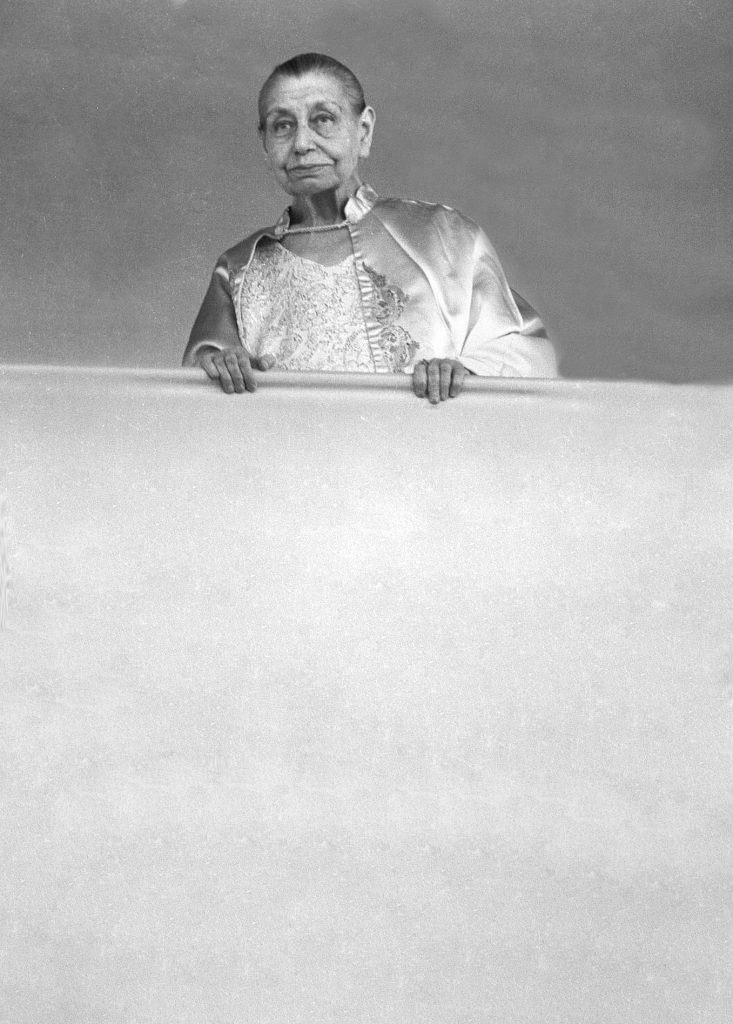
There should be somewhere on earth a place which no nation could claim as its own, where all human beings of goodwill who have a sincere aspiration could live freely as citizens of the world and obey one single authority, that of the supreme Truth; a place of peace, concord and harmony where all the fighting instincts of man would be used exclusively to conquer the causes of his sufferings and miseries, to surmount his weaknesses and ignorance, to triumph over his limitations and incapacities; a place where the needs of the spirit and the concern for progress would take precedence over the satisfaction of desires and passions, the search for pleasure and material enjoyment.
In this place, children would be able to grow and develop integrally without losing contact with their souls; education would be given not for passing examinations or obtaining certificates and posts but to enrich existing faculties and bring forth new ones. In this place, titles and positions would be replaced by opportunities to serve and organise; the bodily needs of each one would be equally provided for, and intellectual, moral and spiritual superiority would be expressed in the general organisation not by an increase in the pleasures and powers of life but by increased duties and responsibilities.
Beauty in all its artistic forms, painting, sculpture, music, literature, would be equally accessible to all; the ability to share in the joy it brings would be limited only by the capacities of each one and not by social or financial position.
For in this ideal place money would no longer be the sovereign lord; individual worth would have a far greater importance than that of material wealth and social standing. There, work would not be a way to earn one’s living but a way to express oneself and to develop one’s capacities and possibilities while being of service to the community as a whole, which, for its own part, would provide for each individual’s subsistence and sphere of action.
In short, it would be a place where human relationships, which are normally based almost exclusively on competition and strife, would be replaced by relationships of emulation in doing well, of collaboration and real brotherhood.
The earth is certainly not ready to realize such an ideal, for mankind does not yet possess the necessary knowledge to understand and accept it nor the indispensable conscious force to execute it. That is why I call it a dream. Yet, this dream is on the way of becoming a reality. That is exactly what we are doing on a small scale, in proportion to our modest means. The achievement is indeed far from being perfect, it is progressive; little by little we advance towards our goal, which, we hope, one day we shall be able to hold before the world as a practical and effective means of coming out of the present chaos in order to be born into a more true, more harmonious new life.
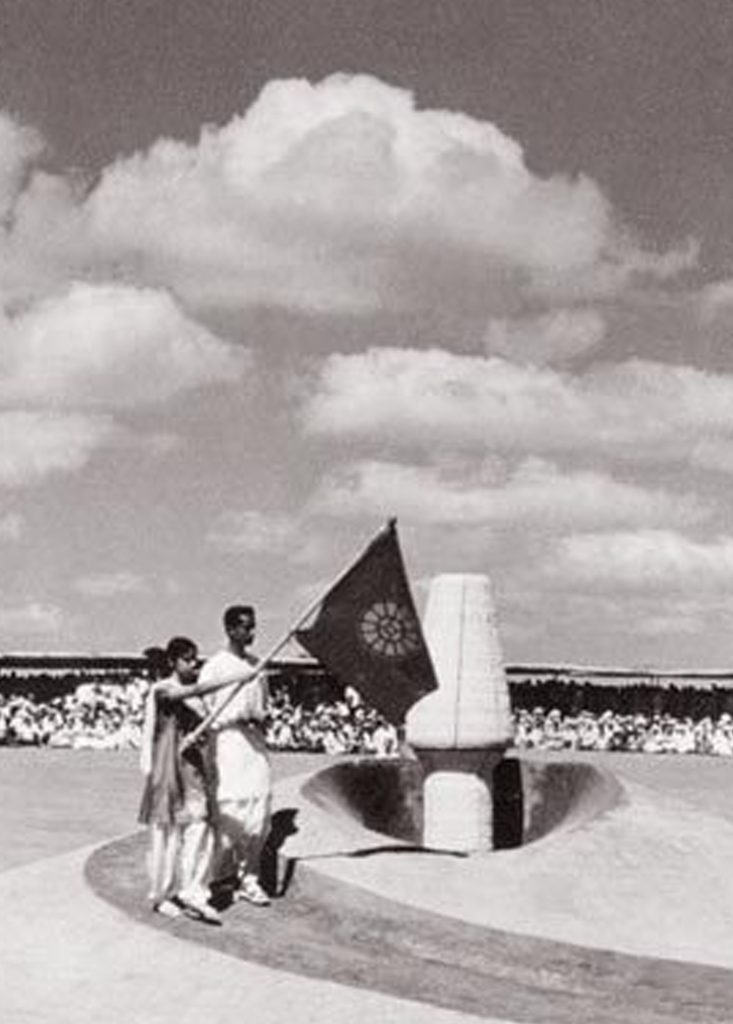
In September 1988, the Government of India protected Auroville by passing a unique Act of Parliament, the Auroville Foundation Act, 1988. This act provided, in the public interest, for the acquisition of all assets and undertakings relatable to Auroville without payment of compensation. These assets, which till then were managed by the Administrator under the Auroville Emergency Provisions Act, were temporarily transferred to the Government of India, with the aim of ultimately vesting them in a body corporate established for the purpose, the Auroville Foundation. The Auroville Foundation came into existence in January 1991. The assets were vested in the Foundation on April 1st, 1992.
Melting pot: For example, there are men, women and children here representing the East-West divide, the North-South gap, all sorts of religious and cultural backgrounds, the rich and the poor, the literate and the illiterate, the sophisticated and the unsophisticated, people of different races and colour, from villages, towns and cities, from democracies and socialist societies, from first, second and third world countries, some easy to relate to, some not so easy, some hard workers and some more lazy, all with different preferences and priorities as they go about their daily lives – as smokers/non-smokers, drinkers/teetotalers, vegetarians/non-vegetarians, meditators/non-meditators, office workers/foresters and so on. The one thing that all these people have in common, however, is that they have ALL voluntarily placed themselves in the melting pot which is Auroville, and have accepted to work out their differences in a new and higher way, changing themselves instead of trying to change others as they seek to realise the ideal of human unity in diversity.
We say “changing themselves”, but what does that mean? It doesn’t mean trying to become the same as everyone else around them. That would be a sort of unity in conformity. What Auroville is attempting to achieve is something quite different, accepting and allowing the full, rich and wonderful diversity of mankind to flourish in complete freedom, while yet achieving an inner unity and experiencing a unified and harmonious society. Sometimes the human mix seems too much, too complex, as hidden tensions rise to the surface or old behaviour patterns take over, but actually it is perfect, just as it should be, if Auroville is to be a valid experiment representative of humanity as a whole.
Auroville’s ecosystem is designed to be sustainable, based on the principles of harmony, unity, and diversity. The community is built on water-stressed land, and over the years, it has been transformed into a thriving greenery with a variety of flora and fauna.
Auroville’s ecosystem includes a green belt area, which comprises of several forests, tree plantations, and community gardens. The community uses sustainable agricultural practices, including organic farming, permaculture, and agroforestry. Auroville has a unique water management system that collects rainwater, recycles wastewater, and promotes water conservation.
The community is powered by renewable energy, including solar, wind, and biogas. Auroville also has its own educational system, which is based on the principles of integral education and aims to create well-rounded individuals who can contribute to the betterment of society.
Auroville’s ecosystem is designed to be in harmony with nature and to promote sustainable living. The community is a living example of how humans can coexist with nature while also thriving in a modern world.
UNESCO has endorsed the Auroville project through six resolutions since its inception in 1968. The first four resolutions were passed in 1966, 1968, 1970, and 1983, respectively. These resolutions recognized the cultural significance of Auroville, its importance as an international center for education, and its contribution to promoting world peace. In 1985, UNESCO adopted a resolution that recognized the ongoing efforts of Auroville in promoting human unity, sustainable development, and cultural diversity. Another resolution was passed in 1994, which encouraged UNESCO member states to support Auroville’s activities and promote its ideals. The latest resolution was passed in 2018, on the occasion of Auroville’s 50th anniversary, recognizing its achievements and reaffirming UNESCO’s support for its goals. These endorsements highlight the important role Auroville plays in promoting sustainable development, intercultural dialogue, and peace, and reinforce its position as a model for sustainable communities around the world.
Auroville forms an interesting and complex experiment that takes place on more than 20 sq kms of scattered settlements in the midst of forested, semi-urban, and beach areas. For someone new it is difficult to pinpoint exactly where Auroville is. To avoid losing your way, here are some tips to make a first visit easier. Generally we recommend visitors to start at the Visitor’s Centre and spend, if possible, a few hours to a day. For those with more time, a week to ten days is advised for a first visit. One can participate in guest introduction tours or other programmes, eat at the community dining hall, and get a feel of the place.
Auroville has so much more to offer than meets the eye at first glance; it is all about a different way of living and receiving the world.
It is better to be than to seem to be.
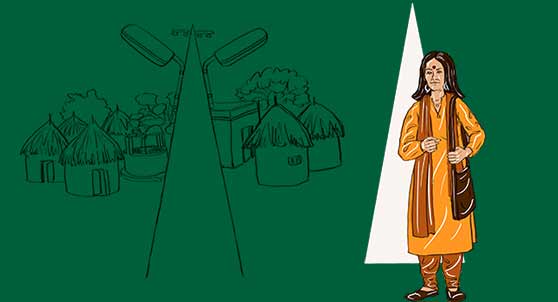
We help establish and act towards maximising the positive impact
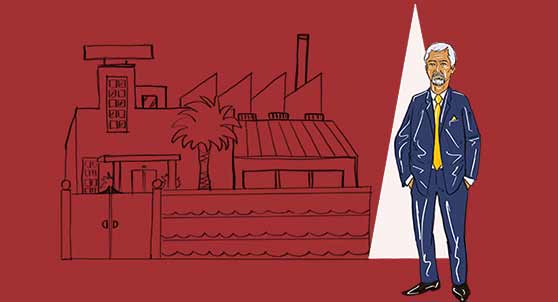
We encourage you to look at the conscious side of capitalism
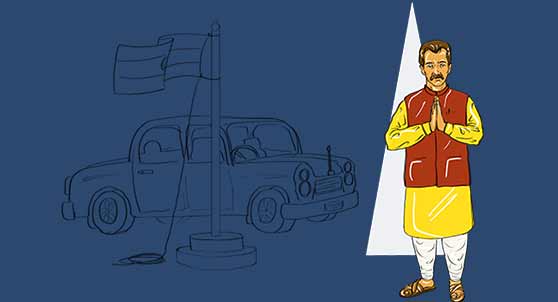
We empower our representatives to transform the system for good
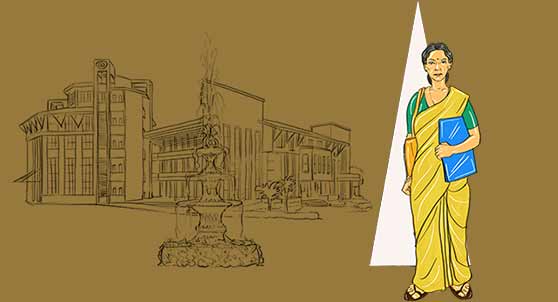
We endeavour to help establish longlasting legacy
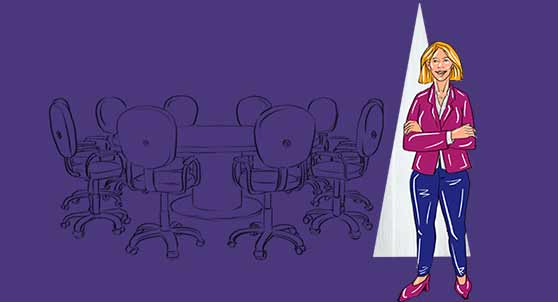
We enable you to root extensively and nourish all

Strategise
We are adept at aligning with your thoughts
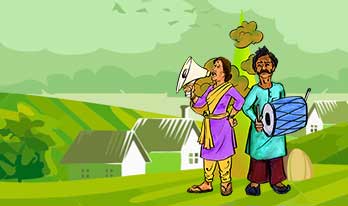
Outreach
We can lead you in the right direction to rightful space

Action
We strive to steer you on a
steady course